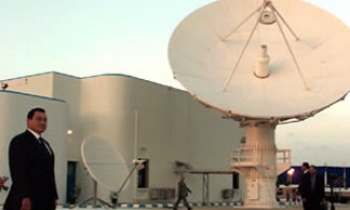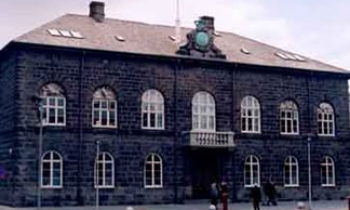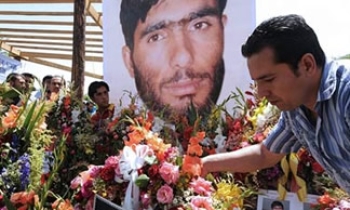Johannesburg: Media groups here have reacted strongly to a restriction by a court on the publication by a local newspaper group of the Danish-origin cartoons about Prophet Mohammed that have sparked global outrage.
Moulana Ebrahim Bham of the Jamiatul Ulema of Transvaal welcomed the court's decision and called on local Muslims - who had threatened drastic action similar to that by Muslims in Syria who attacked the embassies of Denmark and Norway - to exercise calm as the matter was being dealt with.
But local media representatives were alarmed at what they saw as a pre-emptive muzzling of the press, especially since both the Sunday papers cited in the court judgement allegedly had no intention of publishing the cartoons.
Tensions within the local Muslim community were running high at weekend mosque prayer meetings as well as on Radio Islam, which Saturday evening cancelled scheduled broadcasts to allow for a phone-in debate on the issue.
One caller asked for sponsorship from listeners so he could go to Denmark to "take out" those responsible for the cartoons.
But South African Muslim leaders all round have appealed for calm.
The Jamiatul Ulema of Transvaal or Muslim judicial council, a body of mainly South African Indian Muslim priests, sought an urgent interdict from the high court here Friday evening to prohibit the Sunday Times, Sunday Independent and other publications of the Johncom group that owns those two newspapers from publishing the cartoons.
One of the cartoons was reproduced in the weekly Mail and Guardian here earlier Friday.
Judge Mohamed Jajbhay granted the interdict brought by Bham on behalf of the Council. The judge found that the right to dignity of religious groups outweighed the right to freedom of expression.
Jajbhay ruled that the cartoons were offensive and an affront to the dignity of the Muslim community. He said although freedom of the press was enshrined in the South African constitution, there was also a constitutional limitation on the freedom of speech, which specifically prohibits incitement to hatred.
Joe Thloloe, chairperson of the South African National Editors' Forum, called the court ruling "pre-publication censorship". He said it was not up to the court to decide what gets into the papers, with the ruling having taken away from editors the decision to publish or not to publish.
Sunday Times editor Mondli Makhanya, confirming that his paper had not intended to publish the cartoons, said they would have taken the sensitivities of all the readers into account.
The Independent Newspapers Group is to challenge the decision on the principle of press freedom when the matter comes up again in the high court Feb 28.
Ferial Haffajee, editor of the Mail and Guardian and a Muslim, has reportedly apologised for publishing the cartoon, but told the Sunday Independent: "I believe we live in a liberal democracy with an advanced constitution and one which places freedom of expression as a key right.
"My mother has been phoned and asked if I know what I am doing. That makes me very uncomfortable. It is a pressure I did not anticipate."









